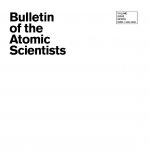Iran and multinational enrichment in the Middle East
By Ali Ahmad, Ryan Snyder | January 2, 2016
As implementation of the 2015 Iran nuclear deal begins, five other states in the Middle East are moving forward with civilian nuclear power programs. While most of these programs involve contracts with foreign vendors to provide reactors and the low-enriched uranium to fuel them, some states may want to follow Iran’s example and develop their own uranium enrichment programs, giving them a potential nuclear weapons capability. The authors assess the uranium enrichment capacity needed to fuel planned nuclear programs in the Middle East and support the idea of using the next decade to convert Iran’s Natanz national enrichment plant to a multinational one – in partnership with one or more of the international parties to the Iran nuclear deal and some of Iran’s neighbors. Such an arrangement could help maintain the transparency of Iran’s program after restrictions on it expire, thereby easing tensions between Iran and other regional powers. This confidence-building measure could create a political context within which other Middle Eastern states forgo acquiring their own national enrichment programs and begin a worldwide movement away from such programs in favor of more proliferation-resistant multinational arrangements.
Together, we make the world safer.
The Bulletin elevates expert voices above the noise. But as an independent nonprofit organization, our operations depend on the support of readers like you. Help us continue to deliver quality journalism that holds leaders accountable. Your support of our work at any level is important. In return, we promise our coverage will be understandable, influential, vigilant, solution-oriented, and fair-minded. Together we can make a difference.
















